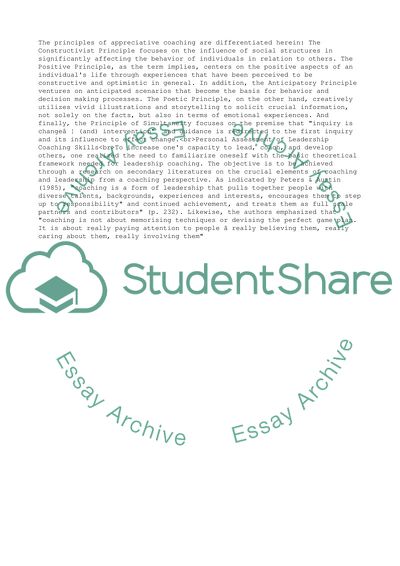Cite this document
(“Personal Leadership Development Plan Essay Example | Topics and Well Written Essays - 1250 words”, n.d.)
Retrieved from https://studentshare.org/management/1421968-personal-leadership-development-plan
Retrieved from https://studentshare.org/management/1421968-personal-leadership-development-plan
(Personal Leadership Development Plan Essay Example | Topics and Well Written Essays - 1250 Words)
https://studentshare.org/management/1421968-personal-leadership-development-plan.
https://studentshare.org/management/1421968-personal-leadership-development-plan.
“Personal Leadership Development Plan Essay Example | Topics and Well Written Essays - 1250 Words”, n.d. https://studentshare.org/management/1421968-personal-leadership-development-plan.


